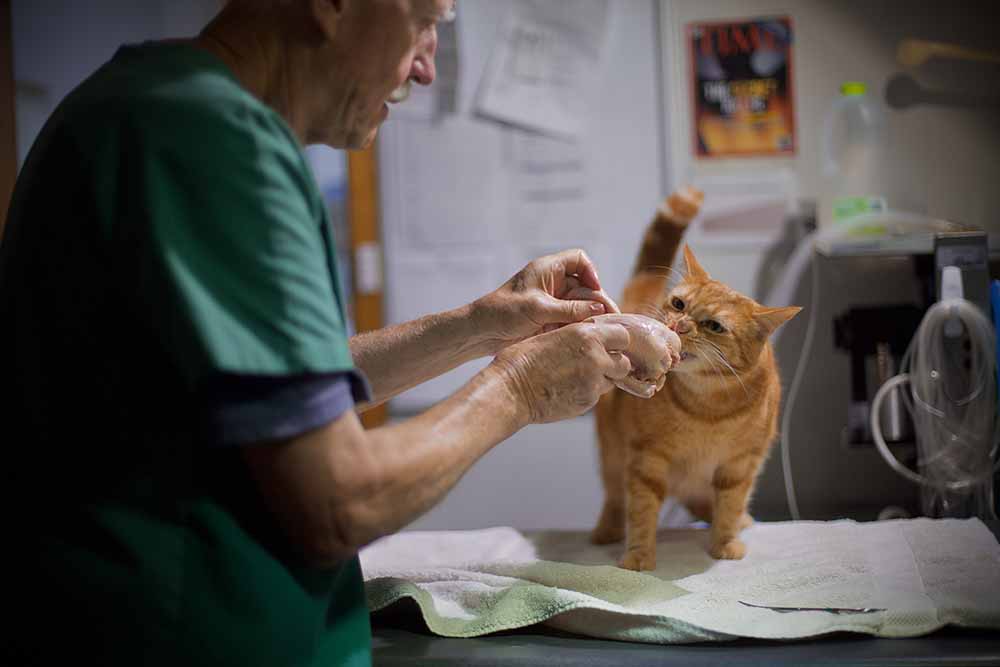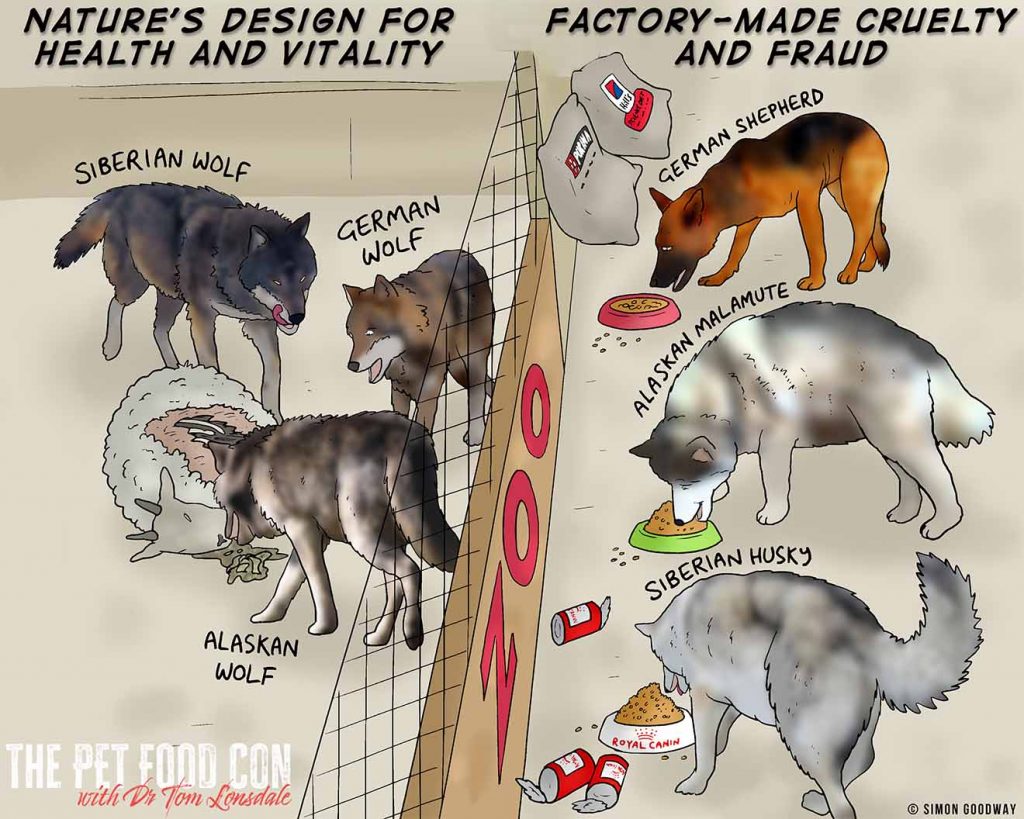Our Mission
The Pet Food Con exposes a global pet food fraud and pet sickness pandemic caused by ‘junk pet food’, and provides the knowledge and confidence to restore your pets’ health and happiness through a natural and nutritious diet of raw meaty bones
Mission Statement
Our mission at The Pet Food Con is to educate, enlighten and empower anyone concerned with the health and welfare of dogs and cats to take the necessary steps to protect the pets in their care.
We aim to bring you the resources and knowledge to see through the subterfuge of a morally bankrupt multi-billion-dollar pet care industry and turn away from the ‘junk pet food’ responsible for a global pet sickness pandemic.
In its place, we aim to inspire pet owners and vets with the confidence to adopt and endorse a natural diet, advocating the feeding of raw meaty bones to dogs, cats, and ferrets. Raw meaty bones are nature’s superfood for pets, providing the perfect combination of nutritional content with medicinal benefits.
Finally, we call upon those with the means and will – the regulators, legislators and legal professionals – to take note of the unscrupulous pet food companies, veterinary schools and practices, and to hold them accountable. Pet owners trust these sectors to care for their pets, but by churning out highly processed packaged pet food and recklessly promoting an industrial diet, their real concern is clear: the shameless pursuit of profit.
Our pets are being harmed unnecessarily, and pet owners are paying billions for the privilege. For their sake, this must stop, and it begins with the truth. The Pet Food Con dares to take a stand amidst a deafening silence. Together, we will enable everyone to make informed decisions, and by so doing improve the lives of pets everywhere.
Pet Food Fraud is hurting your pet's health
Among our pets there is a gum disease pandemic. Some 80 percent of dogs and 85 percent of cats over the age of three have some form of periodontal (gum) disease. The effects on their overall health and longevity are devastating.
Their teeth become encrusted in tartar, their gums become swollen, sore, and bleeding, and their breath becomes foul. But those are only the detectable visible signs that something is wrong. It is well documented in humans that advanced periodontal disease can lead to a range of serious and potentially life-threatening diseases including diabetes, cancer, arthritis, heart, kidney, lung, and liver disease. The same risks apply to dogs and cats.
The real tragedy is that this pandemic is, ultimately, manmade. It can be traced back to the highly processed packaged pet food which pet owners, deceived by decades of false advertising and mistruths, think are the best diets for their pets.
The three largest pet food companies in the industry, collectively know as the ‘Big 3’, are Mars Petcare, Nestlé Purina and Colgate-Palmolive. These companies control a vast portion of the pet food market and have been long been criticised for their dubious practices.
Despite this, manufacturers of ‘junk pet food’ continue to turn a blind eye to pets’ actual needs, as set by nature and confirmed by science.
A leader in his field, ‘whistleblower’ veterinarian Dr Tom Lonsdale has been campaigning tirelessly for over 30 years to hold pet food companies accountable for their actions and to raise awareness about the importance of feeding pets high-quality, healthy raw meaty bones.
He has written three books on the subject – Raw Meaty Bones: Promote Health, Work Wonders: Feed Your Dog Raw Meaty Bones, and Multi-Billion-Dollar Pet Food Fraud: Hiding in Plain Sight – and has been a vocal advocate for pet health and welfare since 1991, in an attempt to bring the duplicitous practices of pet food manufacturers, as well as those veterinary schools and practices that collude with them – to a wider audience in order to improve the health, wellbeing and happiness of pets everywhere.


“Everyone knows that humans can't sustain a diet of industrial, highly processed foods. For carnivores, with their special dietary imperatives, the consequences are arguably much worse”
– Dr Tom Lonsdale



